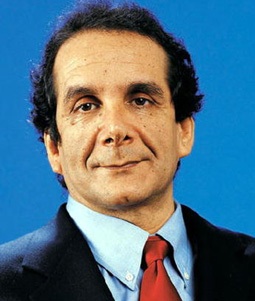If you’ve ever wondered–and worried–about where government support of the arts leads, look no further than the full transcript of an August 10 telecon between an official at the National Endowment for the Arts (NEA) and a group of “independent artists from around the country.” The short version: It leads to the use of taxpayer-funded culture as a means of propagandizing for specific, partisan political aims. Which corrupts not just art but artists.

As Patrick Courrelieche, an L.A.-based arts organizer who participated in the call, reported at Big Hollywood, the people running the call, including the NEA’s director of communications Yosi Sergant and members of the White House Office of Public Engagement and United We Serve, told the assembled crew of “thought leaders” that “we’re going to come at you with some specific asks here” (that’s a direct quote from Buffy Wicks of the Office of Public Engagement).
Chief among the requests from Sergant (who was either “reassigned” from the agency or “reportedly resigned” after denying the full extent of his role in organizing the call) was “to pick something whether it’s health care, education, the environment, you know… [and] apply artistic, you know, your artistic creative communities’ utilities and bring them to the table.” Beyond the specific policy issues above, the call organizers stressed the ideologically loaded concept of “service” as the animating principle of the Obama administration and wanted the artists to do whatever they could to promote that. As Wicks put it, “We really view [our efforts] as an onramp to a lifetime of service. We really want service to be incorporated into people’s daily lives.”
Given that the NEA prides itself on being the single largest funding source for the arts in the country, such arm-twisting by agency officials, however masked in fulsome compliments to creators’ genius, is disturbing on its face. It clearly sets a political agenda for the very people who are likely to be applying for, well, NEA and other government grants. Does anyone think that the organizers were fishing around for projects that might complicate the public option for health care?
Embedded in the discussion is at least one other disturbing point: a nearly lunatic delusion that artists are the vanguard of the proletariat. As Mike Skolnick, the political director for music impresario Russell Simmons, told the participants, the assembled crew “tell our country and our young people sort of what to do and what to be in to; and what’s cool and what’s not cool.” While that command-and-control notion is widely shared by liberals and conservatives alike, it is patently false. Artists and politicians hate to hear this, but the audience does have a mind of its own.
Back in the late 1980s and early 1990s, when Andres Serrano’s “Piss Christ” was all the rage, the NEA under President George H.W. Bush was attacked by liberals for restricting the aesthetic independence of institutional and individual grant recipients. John Frohnmayer, Bush’s NEA director, eventually went on the record in favor of total freedom of expression, even for those receiving federal dollars. In his 1993 memoir, Leaving Town Alive: Confessions of an Arts Warrior, he said that government-funded art should be free of “restrictions” and that the government doesn’t really set an agenda anyway: “The government is not the sponsor of any idea that is produced by the artist. The ideas belong to the artist; the government is merely an enabler.”
Now more than ever, it seems, and it’s not a pretty sight. It’s ironic that official attempts to use artists have come to light only weeks before the 20th anniversary of the destruction of the Berlin Wall and the subsequent collapse of the German Democratic Republic, a regime that spent an enormous amount of time, energy, and resources creating fake culture to bolster its political agenda. “Official” culture is always unseemly, especially when the connections between officials and the ostensible creators are hidden from the audience.
COMMENTS
Please let us know if you're having issues with commenting.